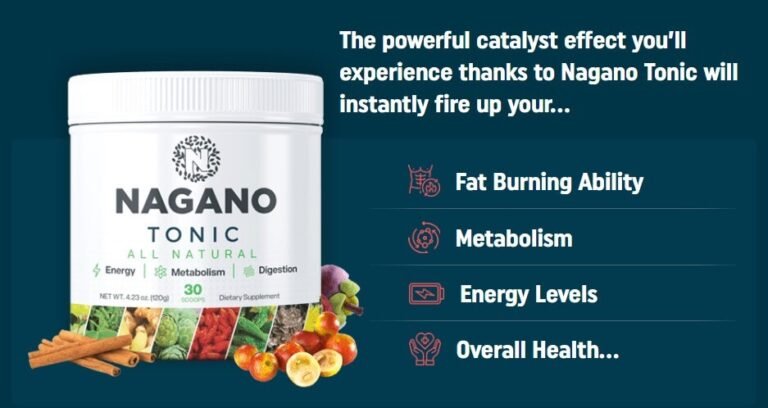
Break the Yo-Yo Dieting Cycle: Proven Steps to Lose Weight for Good and Keep It Off
Introduction: The Emotional Rollercoaster of Yo-Yo Dieting
Opening Hook
Picture this: You start a new diet, fully motivated. You see quick results, feel proud, even energized. But weeks later, the weight starts creeping back. You feel discouraged, maybe even ashamed, and suddenly, you’re back where you started—or worse, you’ve gained more. This is the cycle of yo-yo dieting, and if it sounds familiar, you’re far from alone.
Acknowledge the Cycle
Many people find themselves stuck in this endless loop. It’s a cycle fueled by a diet industry that promises fast results but often fails to deliver long-term success. Yo-yo dieting doesn’t just affect your body—it takes a toll on your mind, your self-esteem, and even your social life. You may find yourself in a loop of excitement, frustration, and eventually, defeat.
The Science Behind Yo-Yo Dieting: Why It Happens
Metabolism and Muscle Loss
When we diet too restrictively, our bodies go into a kind of survival mode, slowing down our metabolism to conserve energy. Quick weight loss often includes muscle loss, which makes it even harder to keep the weight off once the diet ends. With each round of yo-yo dieting, your body’s ability to burn calories diminishes, making weight regain almost inevitable.
Psychological Triggers
Fad diets often ignore the reasons behind our eating habits. Emotional triggers like stress, loneliness, or boredom can lead to overeating, especially if you’ve been restricting yourself. When these triggers are paired with restrictive dieting, they create a perfect storm for weight regain.
The Restriction-Binge Trap
Restrictive diets often lead to a cycle of deprivation followed by binge eating. After days or weeks of strict dieting, one indulgence can lead to guilt and the mentality of “I’ve already messed up, so I might as well give in.” This sets off a cascade that brings you right back to where you started.
Break Free from the Cycle: Steps to Lose Weight for Good
Step 1: Reframe Your Mindset from Dieting to Wellness
From Quick Fixes to Lasting Health
The first step is changing how you think about weight loss. Instead of aiming for fast results, focus on long-term wellness. What matters isn’t just losing weight quickly but building habits that make you feel strong, energetic, and confident over time. Acknowledge that setbacks are part of the journey, not a reason to quit.
Focus on Progress, Not Perfection
A single day of indulging isn’t a failure; it’s part of a balanced approach. Remind yourself that health is about balance, not deprivation. Embrace small victories, like choosing a healthier snack or moving more in your daily routine, as these are the building blocks of lasting change.
Step 2: Adopt a Balanced, Flexible Approach to Eating
Ditch the All-or-Nothing Mentality
One reason restrictive diets fail is because they’re unsustainable. Instead, aim for a balanced approach where you can still enjoy your favorite foods in moderation. Flexible dieting allows you to incorporate treats without feeling like you’ve failed, making it easier to stick with over the long haul.
Listen to Your Body
Consider intuitive eating, which encourages you to pay attention to hunger cues, eat when you’re truly hungry, and stop when you’re satisfied. By reconnecting with your body’s signals, you can make eating more enjoyable and less stressful. You’ll also learn to recognize the difference between physical hunger and emotional hunger.
Step 3: Build Healthy Habits Gradually
Start Small for Lasting Change
Quick fixes often backfire because they’re overwhelming. Instead, start with small, manageable changes. Try walking for 15 minutes each day, drinking more water, or adding one more vegetable to your meals. Over time, these small changes build momentum and can have a big impact on your health.
Interactive Habit-Tracking Tips
To help you stay consistent, keep a habit tracker. Write down each healthy choice you make, no matter how small, and check it off each day. Seeing your progress visually can be motivating and is a simple way to reinforce your new habits.

The Emotional Rewards of Breaking Free from Yo-Yo Dieting
Reclaiming Your Confidence and Self-Worth
Breaking the cycle can bring a huge boost in self-confidence. You’re no longer tied to a number on the scale or a restrictive eating plan. Instead, you’re focused on building a lifestyle that supports your goals, making you feel more empowered and in control.
A Healthier Relationship with Food and Body
Imagine a life where you feel at peace with food, where eating doesn’t feel like a battle. When you adopt sustainable, balanced habits, you naturally become more attuned to what your body needs. Food becomes fuel, not a source of stress or shame.
Enjoying Life on Your Terms
By breaking free from yo-yo dieting, you’re not only losing weight but gaining a healthier, happier life. Imagine going out with friends, enjoying meals without guilt, and feeling energized to tackle your day-to-day. The benefits go beyond the physical—this is about creating a life you truly enjoy.
Consistency: Your Key to Lasting Success
Set Realistic, Achievable Goals
Forget the drastic “I’ll lose 10 pounds in two weeks” mindset. Instead, set goals that are sustainable, like aiming to walk a certain number of steps each day or cooking at home more often. These goals are easier to reach and offer a sense of accomplishment that motivates you to keep going.
Find Accountability and Support
Having support can make all the difference. Share your goals with a friend, join an online community, or work with a coach who understands the journey. These connections provide encouragement, celebrate your wins, and remind you that you’re not alone.
Celebrate Wins Beyond the Scale
Instead of focusing solely on weight, celebrate non-scale victories, like having more energy, feeling stronger, or noticing improvements in mood and sleep. These are all signs of progress and reinforce that your efforts are paying off.

Conclusion: Embrace a Life Free from the Yo-Yo Dieting Cycle
Congratulations—you’ve reached the end of a journey that could mark the beginning of something truly transformative. Imagine finally breaking free from the relentless cycle of dieting ups and downs. It’s more than just shedding pounds; it’s about reclaiming your life, your confidence, and your happiness. With each mindful choice you make, you’re building a foundation for a healthier, more fulfilled life that doesn’t rely on diets but rather on sustainable, joyful habits.
Every small step you take is a victory. Whether it’s choosing a balanced meal, taking a walk, or celebrating a non-scale victory like feeling more energetic or sleeping better, you’re moving closer to a life where health is natural, not a struggle. Remember, it’s not about being perfect—it’s about staying consistent and kind to yourself on this journey.
Interactive Summary: Your Path to Breaking the Cycle
Ready to take charge? Here’s a quick recap to keep you focused:
- Mindset Matters: Let go of quick fixes. Focus on wellness over speed.
- Balanced Eating: Enjoy your favorite foods in moderation. No more all-or-nothing diets.
- Gradual Habits: Small changes bring big results. Celebrate each one!
- Embrace Emotional Wins: Reclaim your self-confidence, body positivity, and mental peace.
Join Us and Share Your Journey
Are you ready to live a life free from the dieting cycle? Share your thoughts, your hopes, or even the smallest success in the comments below. Let’s inspire each other! And don’t forget to subscribe to TheBuzzBanter for weekly tips and encouragement designed to keep you on track and thriving. You’ve got this—let’s make lasting change together!
FREQUENTLY ASKED QUESTIONS(FAQs)
Q1: I’ve tried to stop yo-yo dieting so many times. Why will this time be any different?
A: We get it—after trying and trying, it can feel discouraging. But this approach is all about gentle, realistic changes rather than extreme diets. You’re not aiming for instant results; instead, you’re building lifelong habits. Imagine celebrating progress you can keep! This time, you’re not just dieting—you’re learning to nourish and care for yourself.
Q2: Can I still enjoy my favorite foods and break the yo-yo cycle?
A: Yes, absolutely! Breaking the cycle isn’t about giving up foods you love; it’s about letting go of restriction and finding balance. When you can enjoy your favorite treats without guilt, it’s easier to keep going without the urge to binge. It’s about freedom, not limitation!
Q3: How do I handle cravings and emotional eating without falling back into old habits?
A: Cravings and emotions can be tough, but the key is to recognize them without judgment. Try pausing and asking yourself if you’re physically hungry or if something else is going on. Practice mindful eating, and find ways to comfort yourself that don’t revolve around food. With time, emotional eating will lessen, and you’ll feel more in control.
Q4: I tend to give up when I don’t see quick results. How can I stay motivated?
A: We understand! Quick results are tempting, but they’re often short-lived. Instead, shift your focus to non-scale victories like improved energy, better mood, or simply feeling proud of sticking to your goals. Keep a journal or habit tracker to celebrate these small wins—they’re a reminder that you’re making progress even when the scale isn’t moving.
Q5: I’m nervous about setbacks. How do I avoid feeling like a failure?
A: Setbacks are normal and even helpful—they show you what works and what doesn’t. Instead of seeing them as failures, treat them as learning moments. Every small step forward, even after a setback, is part of the journey. Remember, resilience is built one step at a time, and every time you get back up, you’re closer to breaking the cycle for good.
Q6: Will this approach really work without intense workouts or strict diets?
A: Yes! Sustainable weight loss doesn’t require intense measures; it’s about consistency. Moderate movement, balanced eating, and mindful habits are powerful tools that help you feel better without extreme measures. This approach isn’t just effective—it’s kind to your body and mind, making it something you can stick with for life.
Q7: How do I get started without feeling overwhelmed?
A: Start small! Pick one habit, like drinking an extra glass of water or adding a walk to your day, and focus on that. Once it becomes part of your routine, add another. You don’t need to change everything overnight. Small changes build momentum, making the process manageable and uplifting!
Q8: How long will it take before I see lasting changes if I follow this approach?
A: It varies for everyone, but typically, sustainable changes can start showing in a few weeks to a few months. You may notice improvements in energy, mood, or sleep quality even sooner! Remember, each small step adds up, and lasting change takes time. Trust the process—you’re building a healthier life, not just losing weight.
Q9: I’m so used to counting calories. Can I stop and still reach my goals?
A: Yes, you absolutely can! While calorie awareness has its place, focusing solely on numbers can lead to stress and obsession. Instead, try tuning into your body’s hunger and fullness cues. This approach, often called intuitive eating, lets you eat more naturally, helping you develop a healthier, less restrictive relationship with food.
Q10: What if I don’t have time for exercise? Can I still break the cycle?
A: Definitely. Exercise is a wonderful tool for overall health, but it’s not the only factor in breaking the cycle. Start with small, achievable steps like standing more throughout the day or stretching. Even a 10-minute walk can make a difference! Over time, you may find joy in movement that fits your lifestyle and supports your goals.
Q11: I struggle with social situations that involve food. How can I stay on track?
A: Social gatherings can be challenging, but remember that balance is key. Go into events with a plan—maybe choose smaller portions or focus on enjoying the company rather than the food. And if you indulge, don’t stress! Social connections are part of a healthy life, so allow yourself to enjoy these moments without guilt.
Q12: What if I gain a little weight back? Is it okay to feel discouraged?
A: Weight fluctuations are a normal part of life, and gaining a little back doesn’t mean you’ve failed. It’s okay to feel discouraged, but remember that setbacks don’t erase your progress. Use these moments to reassess your habits and make adjustments. Focus on your long-term goals, and trust that you’re still on the right path.
Q13: How can I deal with self-doubt or negative thoughts that pop up?
A: Self-doubt is natural, especially when you’re working on breaking deep-rooted habits. When negative thoughts arise, try reframing them—remind yourself of your progress and resilience. Surround yourself with positive influences and take it one day at a time. Each step forward, no matter how small, is proof of your strength.
Q14: What are some practical ways to manage stress that don’t involve food?
A: Great question! Stress management is key to sustainable weight loss. Try deep breathing exercises, journaling, or taking a short walk when you feel stressed. Other ideas include listening to calming music, calling a friend, or even taking up a hobby that relaxes you. The goal is to find fulfilling activities that replace emotional eating.
Q15: I’ve seen friends lose weight quickly with fad diets. How can I stay confident in my own journey?
A: It’s natural to feel a twinge of envy, but remember: quick fixes often lead to quick regains. Your journey is about building lasting health, not chasing temporary numbers on the scale. Celebrate your own progress, knowing that you’re investing in habits that will pay off in the long run. Stay focused on your path—it’s one you can be proud of.
Q16: What if I get overwhelmed and feel like giving up?
A: Feeling overwhelmed happens to everyone at some point, but remember, you’re not alone. Break things down into tiny steps. Start with one small change, and gradually build from there. Revisit your goals, connect with supportive friends, or even re-read this article to remind yourself why you started. You’re stronger than you think!
Q17: Can I involve my family in this journey, and how would that help?
A: Absolutely! Including your family can make the journey more enjoyable and supportive. Try cooking healthier meals together, or plan active family outings. Having loved ones join you not only builds a healthier household but also reinforces positive habits. Plus, sharing successes (and even struggles) with those close to you creates a wonderful support system.
Q18: How do I know if I’m making real progress without relying solely on the scale?
A: Great question! Look for non-scale victories like better energy, improved sleep, feeling stronger, or even better mood and mental clarity. Notice if clothes fit differently or if daily activities feel easier. These are signs that your efforts are working and that you’re becoming healthier, even if the scale doesn’t show immediate changes.
Q19: How can I stay patient when my progress feels slower than I expected?
A: Slow progress can be tough, but remember, steady change is often more sustainable. When you feel frustrated, think about how far you’ve come. Celebrate small wins and remind yourself that real, lasting results take time. Trust the process, be kind to yourself, and know that each day you stick with it, you’re getting closer to a lasting transformation.
Q20: What are some good ways to reward myself that don’t involve food?
A: Rewarding yourself is a wonderful motivator! Try treating yourself to something that feels genuinely fulfilling, like a relaxing bath, a new book, a movie night, or even a fun outing. Non-food rewards can also include buying new workout gear, scheduling a spa day, or taking a mini getaway. Celebrating your progress in meaningful ways keeps you motivated without reverting to old habits.




